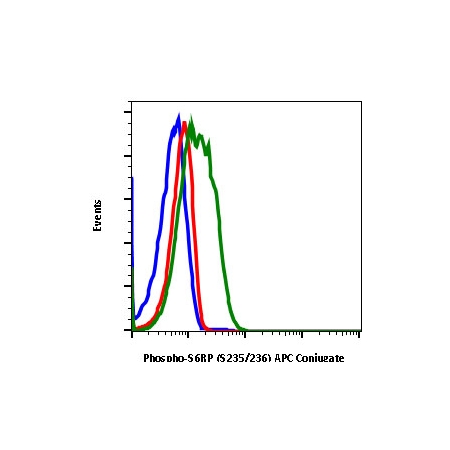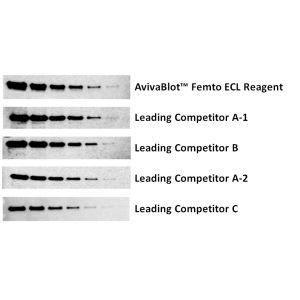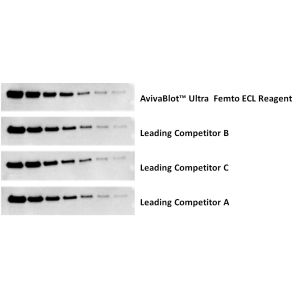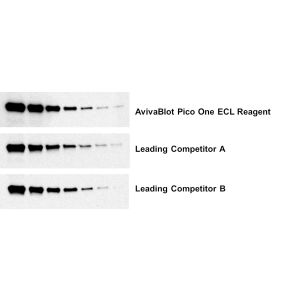Human RPS6 Antibody : APC (Phospho-Ser235/236)
Katalog-Nummer OAAQ00043-10tests
Size : 10Tests
Marke : Aviva Systems Biology
| Datasheets/Manuals | Printable datasheet for OAAQ00043 |
|---|
| Tested Species Reactivity | Human, Mouse |
|---|---|
| Predicted Species Reactivity | Mouse, Rat |
| Product Format | Liquid. 1X PBS, 0.09% NaN3, 0.2% BSA. |
| Clonality | Monoclonal |
| Clone | S6S235S236-R3A2 |
| Isotype | Rabbit IgG1k |
| Host | Rabbit |
| Conjugation | APC: Allophycocyanin |
| Application | FC |
| Reconstitution and Storage | 2-8C |
| Immunogen | A synthetic phospho-peptide corresponding to residues surrounding Ser235/236 of human phospho S6 Ribosomal Protein |
| Purification | Protein A+G |
| Target Post-Translational Modification | Phospho-Ser235/236 |
| Application Info | For flow cytometric staining, the suggested use of this reagent is 5 uL per million cells or 5 uL per 100 uL of staining volume. It is recommended that the reagent be titrated for optimal performance for each application. |
| Reference | Ruvinsky I and Meyuhas O. (2006) TRENDS in Biochemical Sciences. 31: 342-348. |
|---|---|
| Gene Symbol | RPS6 |
| Gene Full Name | ribosomal protein S6 |
| Alias Symbols | S6 |
| NCBI Gene Id | 6194 |
| Protein Name | 40S ribosomal protein S6 |
| Description of Target | Ribosomes, the organelles that catalyze protein synthesis, consist of a small 40S subunit and a large 60S subunit. Together these subunits are composed of 4 RNA species and approximately 80 structurally distinct proteins. This gene encodes a cytoplasmic ribosomal protein that is a component of the 40S subunit. The protein belongs to the S6E family of ribosomal proteins. It is the major substrate of protein kinases in the ribosome, with subsets of five C-terminal serine residues phosphorylated by different protein kinases. Phosphorylation is induced by a wide range of stimuli, including growth factors, tumor-promoting agents, and mitogens. Dephosphorylation occurs at growth arrest. The protein may contribute to the control of cell growth and proliferation through the selective translation of particular classes of mRNA. As is typical for genes encoding ribosomal proteins, there are multiple processed pseudogenes of this gene dispersed through the genome. |
| Uniprot ID | P62753 |
| Protein Accession # | NP_001001.2 |
| Nucleotide Accession # | NM_001010.2 |







